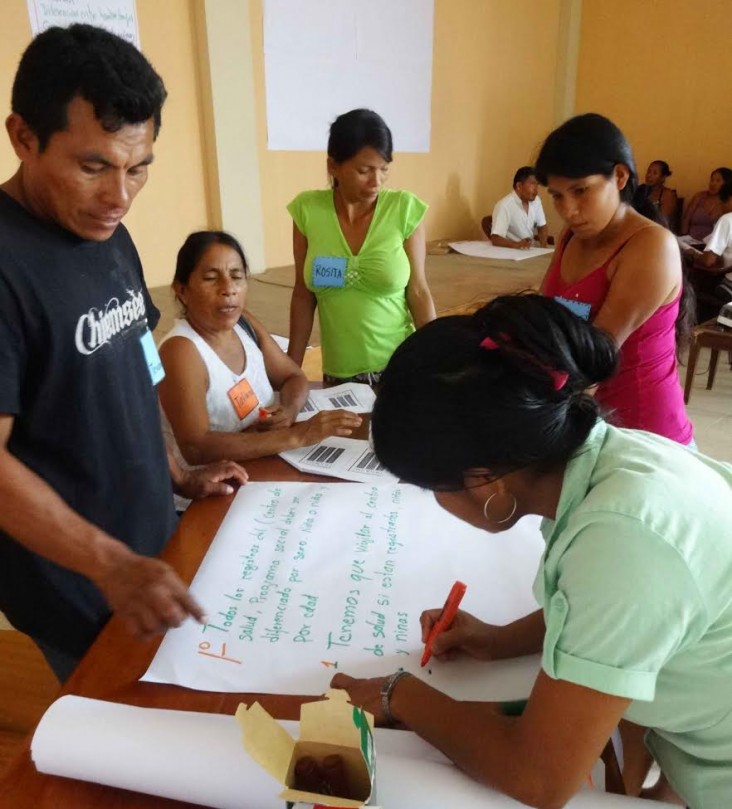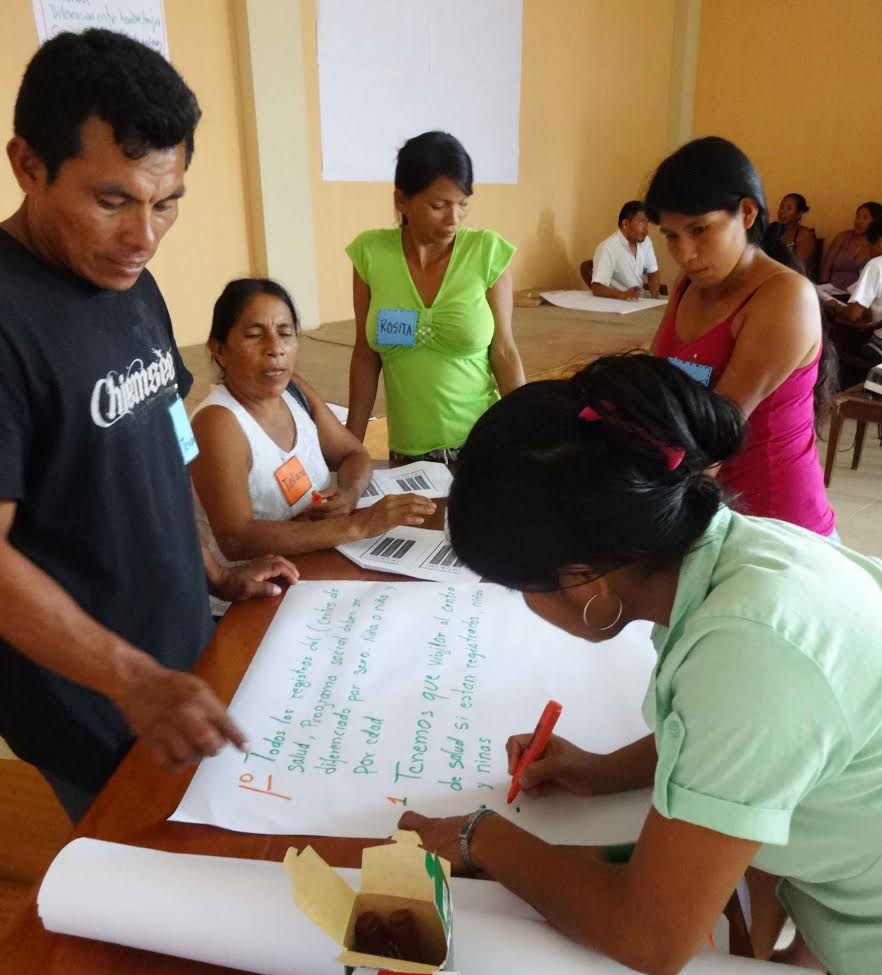
Effective government institutions that represent the interests of all citizens are essential for economic growth and prosperity. Throughout Peru, and especially in rural areas, government organizations often lack the capacity and resources to be effective. To address these issues, USAID partners with the Government of Peru, local and regional governments, and civil society to improve the quality of public services and promote transparent governance.
While Peru has experienced sustained economic growth over the past decade, rural poverty remains remarkably high at 48%. Part of this disparity can be explained by the absence of efficient, effective government. Citizens in rural Peru lack high quality public services such as schools, health services, and solid waste management. The Government of Peru (GOP) has decentralized public services and resources to regional and local governments, but more work is needed to build local capacity and increase accountability.
OUR WORK
DECENTRALIZING GOVERNANCE
USAID collaborates with 37 regional and local governments in the Peruvian Amazon to promote effective public management and service delivery in Loreto, Amazonas, Ucayali and San Martin. This support includes training local officials in budgeting and planning, creating business plans for health centers to better provide and monitor services, and developing solid waste management services.
Over 800 government officials and local leaders have been trained. Solid waste management plans were instituted in seven target municipalities; collection increased from one to four times a week on average. In eight community health centers, appointment wait times decreased from two hours to less than forty minutes. To monitor and maintain this progress, USAID helped communities form 30 public service oversight committees. As a result of these successes, the Government of Peru standardized these management practices in the ‘Directive for Decentralized Management of Public Services Oriented towards Results’ so that all regional and local governments can improve their public service delivery.
PROMOTING TRANSPARENCY
While the Peruvian Amazon is resource rich in timber and natural resources, tax revenues from their extraction are often misused. To address this problem, USAID is implementing the Extractive Industries Transparency Initiative (EITI). The EITI is an internationally-recognized process to form agreements with governments, businesses, and civil society organizations to promote transparency and accountability in determining how to use royalty resources for local development.
The regional governments of Piura, Moquegua, and Loreto approved EITI agreements and established citizen committees to monitor progress. Each of the agreements involved robust participation from local governments, civil society, and hydrocarbon and mining companies, creating a framework for how taxes and private royalties can better benefit local communities. USAID has trained over 1,000 community leaders in participatory budgeting, resulting in greater in engagement in annual budgeting processes and new channels to monitor government expenditures for the benefit of the public.
COMBATTING CORRUPTION
Corruption pervades all levels of government in Peru. USAID has supported the Government of Peru to design and implement the Open Government Plan, an effort to make all public information openly available. Over 900 government officials received training related to open government principles, anti-corruption, and access to information. To help combat corruption in the justice sector, USAID trained over 800 judges, prosecutors, and other government staff in how to identify, oversee and prosecute corruption cases. This curriculum was transferred to the Peruvian National Judicial School to continue training for justice sector professionals into the future.
STRENGTHENING ELECTIONS AND POLITICAL PROCESSES
Free and fair elections are a fundamental principle to democracy. In Peru, USAID supported political reforms that increase voter awareness and combat illegal campaign financing. Initiatives now enable citizens to access information about candidates’ legal background and finances, and helped establish the “empty seat” law which allows Congress to leave a vacant seat when members are found guilty of a crime instead of automatically refilling the seat from the convicted legislator's party. These measures contributed to general elections in 2016 that the public considered to be free and that had a marked increase in electing “clean” legislators.
COMBATTING HUMAN TRAFFICKING
Peru is a source, transit, and destination country for men, women, and children subjected to forced labor and sex trafficking. Indigenous Peruvian women and girls are in particular exploited. USAID is working with the Peruvian Government to increase understanding of human trafficking routes and increase Trafficking in Persons (TIP) resources in the areas of Loreto, Madre de Dios, Cusco, and Lima. USAID has convened conferences across these regions to raise awareness of TIP, and trained over 250 service providers who work with TIP victims. USAID’s partnership with the GOP has helped increase public attention and more than doubled public funding to stem trafficking and help victims.
PRIORITIZING INDIGENOUS COMMUNITIES AND WOMEN
Across all areas of partnership, USAID promotes multiculturalism and gender equality. In Madre de Dios, USAID supports indigenous communities, farmers, and miners with the development of community ‘life plans’. These instruments bring together different groups to identify and implement a common economic development vision. Eleven life plans have been developed to date in remote rural areas. To further support community cohesion, USAID has trained over 1,000 citizens in conflict mitigation and resolution skills. To address the exclusion of women from leadership and education opportunities in the Peruvian Amazon, USAID has created specialized instruction for women on public speaking and leadership to give them the tools to participate more actively in their communities.
Governance & Democracy ![]() (pdf - 204k)
(pdf - 204k)









Comment
Make a general inquiry or suggest an improvement.